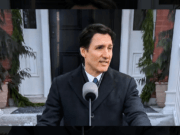Do you feel like the amount you work is increasing but your bills are not decreasing? As the cost of living continues to climb, many are left feeling frustrated and/or constantly worried about money. We’re here to help put your mind at ease; check out our 5 mindful money tips on how to keep your spending in check with some mindful ways here!
With the cost of living increasing from several angles including rent, groceries, education, entertainment (the price of avocado toast is shocking), it’s no wonder country-wide debt is also increasing. According to Trading Economics, India for example has a debt of 557.5 billion USD, Canada is at 685.45 billion CAD and the United States and United Kingdom are in the hundreds of millions. The bad news is being caught in a debt-cycle, can be extremely stressful and make us feel a loss of control. The good news is that there are steps we can take to mindfully manage our money that can help us feel empowered and help put our mind at ease.

To learn more about simple strategies that can make a significant impact on our financial health, we spoke with Jason Flemming, Certified Professional Accountant and Founder of Flemming Advisory Services and here are five tips on how you can take a mindful approach to your finances:
Give your financial health attention and organization by creating a yearly budget:
You may be thinking this is a basic tip but just because you’ve heard it before, it doesn’t mean it’s not true and it doesn’t mean everyone is doing it. Have you done your 2020 budget yet? If not, there’s no time like the present:
Calculate your income after taxes for 2020 (if you’re freelance or work in contracts, estimate based on the previous year without inflating it even if you feel your sales will increase — this way you’re not over estimating income). From there, minus your core expenses (rent, groceries, etc.) then assign the rest accordingly (savings, entertainment, eating out, school, travel, etc.).
Practice financial hygiene:
We always try to make time to focus on our mental or physical health throughout the year so why don’t we check in to our financial health? You can by making a “financial hygiene” routine.
Monitor your yearly budget on a monthly basis. Choose a date (e.g. the 29th of each month) and keep it consistent. This step is key to ensure you’re on track for the year and can adjust for the upcoming month if you get off track (unfortunately unexpected expenses like a flat-tire for example can come up).
If you’re already navigating through a large amount of debt, budget yourself on a weekly basis. This extra attention can help you keep your spending habits in your constant awareness and control your cash flow (the reality is things add up fairly quickly, for example do you know how much you spent on Uber/taxis or public transit so far this month?).
Reflect on the purpose of your purchases:
Distinguish between your needs and wants. Know why you’re spending the amount your spending (e.g. it is an essential like a book for school, is it a luxury like another sweater when you already have several in your closet, etc.). When we ask ourselves what the purpose of our purchase is, we can identify if we are buying from a practical perspective or an emotional one (be mindful of the instant gratification that can come from a “shopping high” or boredom driving you to an Amazon order).

PAUSE before you bust open your wallet:
So you reflected on the purchase of your purpose and feeling empowered, you head to the mall for a new pair of pants (the old ones don’t fit). As you navigate through the mall, a beautiful pair of shoes seem to scream at you “hey you, stop, come…try me on…I’m beautiful…BUY ME.” Temptation is always there but beat the urge to impulse buy by doing some calculations:
Do you know how much you make per hour? Most people know how much their annual salary, but you need to know how much you make per hour after taxes. When you’re shopping, bring this awareness to the price of any items you’re looking for. For example, if you make $20/hour and the shoes are $160, ask yourself if they are worth 8 hours of your work time/life. Practice a pause before you purchase; if you’re worried the item may sell-out, ask the store to put it on hold.
Dining out? The cost of eating-out can quickly add up and easily throw us off budget (especially with the convenience of delivery like UberEATS). Socializing is important but use the pause before committing to every social event. When you do go, help yourself stay on budget by browsing at the menu beforehand (if possible). Avoid going to restaurants and grocery stores very hungry as it can lead to over ordering/buying.
Do not live with a buy now, pay later mentality:
The interest rate on your credit card is not in your best interest. If you’re heavily in debt on multiple credit cards, look up options to consolidate. Pay your credit card balances off every 14-21 days if possible. Interest rates are so high, it’s important to factor them into your budgeting. If you cannot pay off your balances due to needing money for your essentials (groceries for example), then ensure you have the lowest interest rate possible (be mindful of all the “points” cards, it seems like you’re winning with miles but the interest rate is generally higher so in the end, you’ll lose more that way. Remember, credit card distributions are companies designed for profit, not consumer protection).

Seek support:
Investments are great but you know what else is great? Investing in your financial health and knowledge. Educate yourself through a consulting or coaching session with companies who provide personalized sessions to provide tips, tricks and support (including help to apply for government grants). The past decade had an increase in life and/or fitness coaches because the support can help lead us to success, so why not take the same approach to our finances?
For more mindful money management tips, check out this post.
Main Image Photo Credit: www.debt.org
Rachna Sethi
Author
Rachna (@thesassyspiritual) is a graduate of the Applied Mindfulness Meditation program from the University of Toronto, a certified Educator with two bachelor degrees and a diploma in Art Therapy. She's dedicated to living with a compassionate approach. Committed to helping people integrate Mindfuln...














































































































